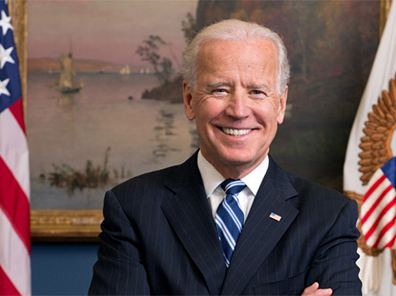
During his March 25 press conference, President Biden announced that he had asked Vice-President Harris to focus on "the fundamental reasons why people leave Honduras, Guatemala, and El Salvador in the first place." He then listed the reasons as earthquakes, floods, lack of food, and gang violence. In addition, my colleague David North has offered a good-faith outline for what such an aid effort might look like. But my 40 years of living and working abroad for the U.S. government leads me to conclude that, if those issues and aid efforts are what Harris focuses on, then nothing will change.
In fact, before any additional U.S. taxpayer resources are expended in these three countries, the rampant corruption that infects the Northern Triangle elites must be directly and firmly dealt with by both the Biden administration and by the people of those countries.
According to the 2020 Corruptions Perception Index (CPI) which attempts to define the level of corruption in the public sector, two of these three countries—Guatemala with 25 points and Honduras with 24 points out of a possible 100—rank among the most corrupt countries in the world. (The lower the score, the higher the corruption.) El Salvador is the least corrupt of the three countries with 36 points, which isn't saying much when compared to the 88 points of the least corrupt counties—New Zealand and Denmark. Just for reference, the U.S. score, which is on a downward slope, is 67, which ties it with Chile for the 25th least corrupt country in the world.
As the CPI notes on its website, in Honduras "Weak institutions contribute to a lack of disaster preparedness" and Honduras "lost millions to corruption in the last decade." This is further compounded since the Honduran "Congress approved a series of laws that promote corruption and hinder investigations."
Interestingly, Biden acknowledged the long-standing corruption in these countries when he said that earlier in his career he provided funding to repair street lights directly to contractors rather than to a corrupt head of state in an unnamed Central American country. The idea apparently was that better street lighting would cut the crime rate and fewer people would then leave for the United States. This was at best a Band-Aid on a severed artery and does not bode well for the future.
Efforts such as improved street lighting may make American politicians feel good; however, they also allow corrupt officials at all levels to quickly take credit for the improvements. It also allows them to pocket or repurpose money that could have been spent on street lighting since the Americans taxpayers covered the cost for them. Furthermore, once American funding dries up, there is no assurance whatsoever that the lights will remain on. Chances are that there will be no money allocated by local leaders to pay the electric bills or to pay for the maintenance and repair of the lights when the lights are shot out and the copper wiring stolen.
Unfortunately, it appears Biden's solution is to borrow an additional seven billion dollars that American citizens will have to repay in order to do more of the same things that have not worked during the many decades that the U.S. has been funneling money into these corrupt countries.
The Biden plan will not impact the corrupt elites in these countries because they know how to play the system. Funding for good governance programs will undoubtedly be included; however, that will only ensure that the largest U.S. foreign development contractors with powerful lobbyists will pocket millions of dollars without any enforceable requirement to produce tangible results. In the meantime, local officials will find ways to ensure that funds that do trickle through go to their cronies and that their corrupt activities are not disrupted.
In addition, the U.S. will dispense hundreds of millions of dollars of borrowed funds to mitigate natural disasters and to combat gang activity while NGOs, UN agencies, and institutional contractors use 50 or 60 percent of the funds appropriated by Congress to pay for salaries, security, overhead, etc. Of course, none of these programs will be sustainable once U.S. funding dries up and none of them will be required to produce measurable results such as a reduction in the number of people leaving for the United States, decline in the poverty rate, reduced gang activity, or even in improved responses to relatively minor natural disasters.
And best of all for the corrupt elites in these countries, they will be able to take credit for any minor improvements that do occur, blame the Americans for any failures, and still be able to relieve any pressure for change from their people by having large numbers of discontented, poverty stricken, and abused people go to the United States. And to top it off, they will benefit from the remittances that these people send back to their families to further mitigate any opposition or demands for change.
The leaders of these countries must sit back and smile because, with the possible exception of the Trump administration, the U.S. never holds them responsible for making life better for their own people, for reducing the flow of immigrants, or for cutting crime rates. Rather, the U.S. assumes responsibility for perpetually caring for their people through ineffective crime reduction efforts, by responding to natural disasters, and by helping fund a wide range of health care, food security, and social service programs, while the elites keep their money and improve their own quality of life.
In sum, Biden's policies are a continuation of the United States' tried-and-true recipe for ensuring that there will be a never-ending flow of illegal immigrants and asylum seekers crossing into the United States. This will never change until the leaders of these nations are made to understand that the U.S. will no longer reward corruption by pouring money into their countries and that the United States will not take in the men, women, and children that they drive out of their countries.
